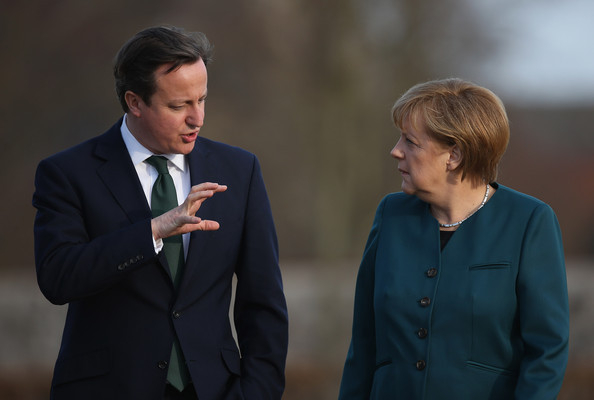
Many months ago, the recently-departed Greek finance minister, Yanis Varoufakis, made a very astute observation. He said that when it comes to settling the Greek crisis: “Whatever the Germans decide, it will be the Germans who pay.” This was, as it turned out, not just a turn of phrase, but a brilliant piece of strategy — a plan for how to win the game that has unfolded since. What Greece has not done is change its own behaviour.
At the outset, Greeks moved money to Switzerland, to Luxembourg, to shelter their cash from tax. Then, when it became clear that actual reform was required, Greece approached all the financially weak countries in the European Union (EU) in an attempt to form a coalition against Germany. This too, failed. So Greece started talking about the Second World War, playing games of guilt, not reform. Germany was hugely upset, but still the tactic failed.
Then Greece raised the threat of it becoming a client state of Putin’s Russia, or China. Anything but embrace the necessity of reform. In negotiations they did not submit their position papers — at least not on time. Even their clothes were a statement that they played by different rules: We in suits, they in leather jackets. They were, in other words, very, very good strategists. They got their money from the European Central Bank (ECB), they got the French and all the others who are indebted and do not want to make reforms — they got them on side.
It was a brilliant move to say they would have a referendum. Who in the EU could argue with that and maintain some shred of commitment to democracy? I would go so far as to say they have made only one mistake until now. This mistake was to campaign for “No” in the referendum. It united everyone in the EU in anger. So Varoufakis was sacrificed and made to ride into the sunset on his motorcycle. What Greece has realised, above all, is that rather than reform, the financially weak countries in Europe want someone to blame. France and Italy too want someone to blame. Who will it be? Germany, of course. The German piggy bank must be smashed to pay for their non-reforms.
And while people in Germany feel angry about this, they also feel bad as pictures flood in of people who say they are dying without medicine or food. What is the answer? It is this. People say that if Greece leaves the euro, it will be a great defeat for the single currency. But the real defeat will come if Greece wins and does not leave the euro and for the same reason: Trust. The trust that the euro is a currency based on rules will disappear. What Europe needs is the common sense of Germany, Austria and the Netherlands to bring order to a EU which is out of order and led by a failure — the commission president, Jean-Claude Juncker, about whom British Prime Minister David Cameron was right. We must realise that Greece has neither the structure nor the readiness to be a partner in the euro. And we must solve the crisis for the long term, not stumble from debacle to debacle. The EU is about more than demanding money from Germany. It needs to be reformed, so I implore the Government of Britain to take a leading role in this, not retire from it. Germans are on your side.
Polls in Germany’s most popular newspaper, Bild, show that German scepticism about bailing out Greece is running at 80 per cent. Even political and academic sentiment is building that we should create a new EU — and start by letting Greece go, and helping it back to the drachma. The fact is that Europe must be strong to face Russia, crisis in the Middle East and an immigration problem to which it has no solution. Europe needs a common policy to all this. What it does not need to be is a victim of a brilliantly executed game by Varoufakis and his Greek friends. They are very good at this. Let us not forget that strategy is a Greek word. German Chancellor Angela Merkel’s problem is twofold. If she hands over the money that Greece is asking for, she will lose the consent of her people. But if she does not give Greece the money it wants, she will have France and Juncker and everyone else saying that German austerity killed Greece.
The reality is that Merkel is much closer to Cameron than she states publicly. She is not a Euro-romantic. She believes, however, that this is her chance to create a stable, powerful Europe, one that can only be achieved through reform. It really is a make-or-break moment. For if Germany bails out Greece, why not France or Italy? It is a very dangerous game and my opinion is clear that it should stop. There are too many states who think only of their empty pockets. Britain can help settle this. It is a real opportunity for Cameron. He could become a powerful, leading voice on how to shape a new Europe. He has won the election and can show that Britain can calm the waves in Europe. For there is common thinking beginning to emerge between Berlin and London. France is too weak to resist — she will join Germany. It is the hour of Europe. It is the hour of Britain.
— The Telegraph Group Limited, London, 2015
Wolfgang Nowak was German Chancellor Gerhard Schroeder’s senior economic adviser.









